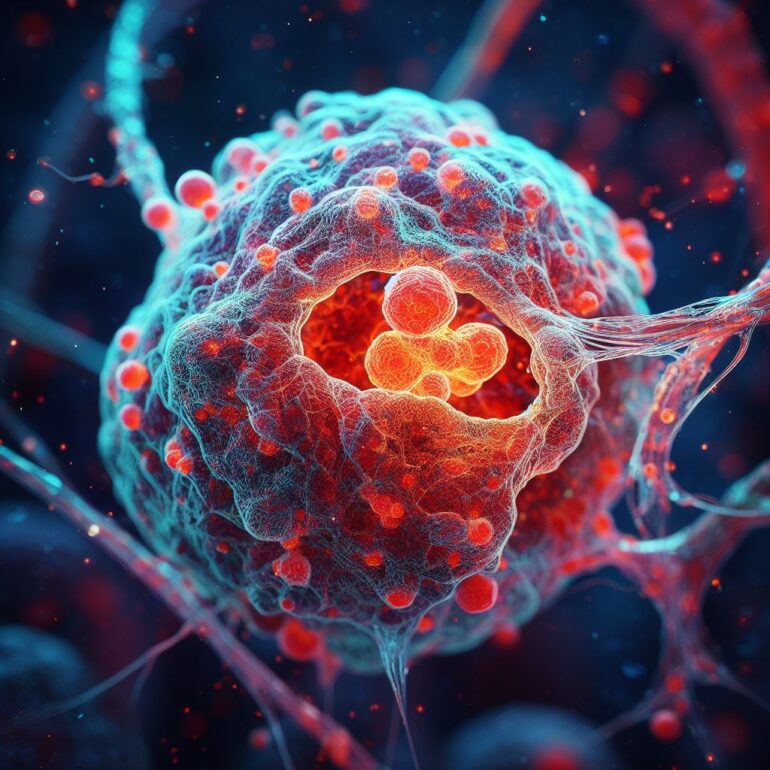TL;DR:
- Zapata Computing, Inc. collaborates with Insilico Medicine, the University of Toronto, and St. Jude Children’s Research Hospital.
- Quantum computing outperforms classical models in generating viable cancer drug candidates.
- The study focuses on developing KRAS inhibitors, historically difficult targets in cancer therapy.
- Molecules generated by quantum-enhanced models show superior binding affinity.
- Partnership with D-Wave Quantum Inc. aims to commercialize quantum-enhanced generative AI.
- Alán Aspuru-Guzik emphasizes the transformative potential of AI and quantum computing.
Main AI News:
In a groundbreaking collaboration, Zapata Computing, Inc., alongside Insilico Medicine, the University of Toronto, and St. Jude Children’s Research Hospital, has achieved a remarkable milestone in the realm of drug discovery. Leveraging the capabilities of quantum computing, the team has demonstrated the unparalleled potential of generative models in identifying viable candidates for cancer treatment. This marks a significant advancement in the field, as quantum hardware surpasses traditional classical models in generating promising drug candidates.
The study, detailed in a recent publication on ArXiv, showcases the synergy between quantum and classical computing in revolutionizing the drug discovery process. By harnessing generative AI, the researchers focused on developing novel inhibitors for KRAS, a challenging target in cancer therapy. Despite being historically labeled as “undruggable,” the team’s approach yielded remarkable results, with molecules generated by quantum-enhanced models exhibiting superior binding affinity compared to those produced by classical counterparts.
Yudong Cao, CTO and co-founder of Zapata AI, emphasizes the significance of this achievement, stating, “This project exemplifies the power of collaboration between quantum and classical computing to deliver innovative solutions. It underscores the potential of hybrid quantum generative AI in addressing complex challenges in drug discovery.“
The implications of this research extend beyond cancer treatment, as Alex Zhavoronkov, PhD, founder of Insilico Medicine, highlights. “Our generative AI engine, Chemistry42, coupled with quantum-augmented models, holds immense promise in unlocking therapeutic possibilities for various diseases,” he states. This collaborative effort sets the stage for a transformative future in drug discovery, paving the way for novel therapeutic interventions.
Moreover, the partnership between Zapata AI and D-Wave Quantum Inc. signifies a significant step towards commercializing quantum-enhanced generative AI. Christopher Savoie, CEO of Zapata AI, expresses optimism about the potential of this technology. “We are on the brink of a new era in drug discovery,” he remarks. “By leveraging quantum computing, we aim to expedite the identification of novel molecules for various industrial applications.”
Alán Aspuru-Guzik, a leading figure in quantum chemistry and co-founder of Zapata AI, echoes this sentiment, emphasizing the transformative impact of AI and quantum computing in scientific research. “This milestone underscores the potential of quantum computing in accelerating drug discovery,” he affirms. “As we continue to push the boundaries of technology, the possibilities are limitless.”
Conclusion:
The successful integration of quantum computing and AI in drug discovery represents a significant milestone with far-reaching implications for the market. It not only promises breakthroughs in cancer treatment but also highlights the potential for quantum technologies to revolutionize various industries. Companies investing in quantum-enhanced AI stand to gain a competitive edge in accelerating innovation and addressing complex challenges in drug development and beyond.

